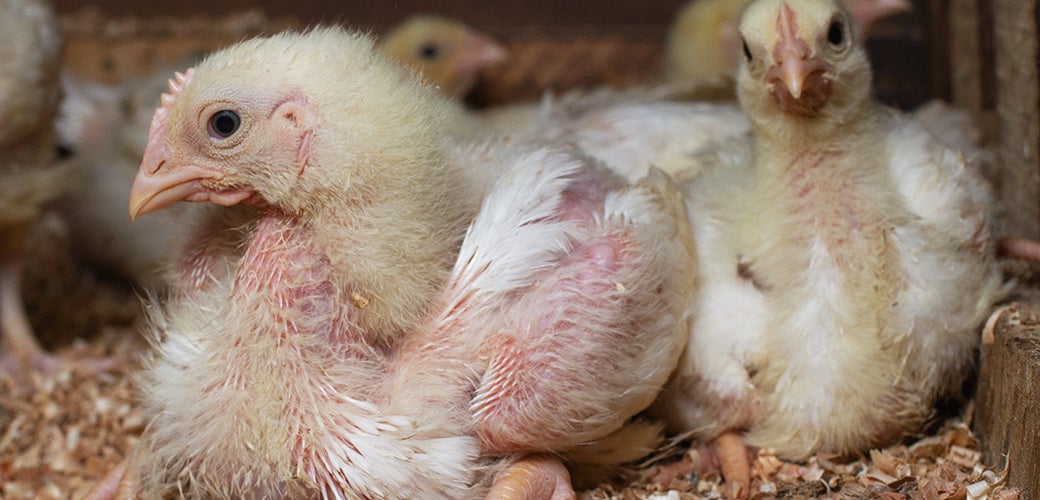
Results were released today from a first-of-its-kind study examining how broiler (meat) chickens’ breeds and growth rates influence their welfare. The study eliminates any doubt that the root of chickens’ suffering is their breeding and has the potential to improve the lives of billions of chickens who currently suffer in high numbers from injuries and infections related to their extreme growth rates.
Global Animal Partnership (G.A.P.), one of the farm animal welfare certifications recommended by the ASPCA’s Shop With Your Heart program, commissioned the study in partnership with the University of Guelph. The ASPCA commends G.A.P. for helping to bring this important research to light, and for using it to guide the evolution of its standards as part of its commitment to improving the welfare of chickens. In 2016, G.A.P. announced that it would replace 100% of chicken breeds with those that have higher-welfare outcomes. The chicken industry as a whole, as well as food companies and institutions purchasing chicken products, must follow G.A.P.’s example by committing to transition to healthier, more robust breeds.
Today, 98% of chickens raised for meat in the U.S. are the fast-growing Cornish Cross breed. In 2013 the ASPCA published a white paper that explored how the chicken industry’s persistent genetic selection for birds who grow bigger, faster, and with disproportionate emphasis on breast meat has led to widespread suffering. We have since worked with dozens of companies to adopt the Better Chicken Commitment, which calls for healthier genetics, better living conditions and more humane methods of slaughter for chickens.
University of Guelph researchers have validated the urgent need to move away from genetically manipulated birds, demonstrating that the modern chicken inherently suffers from its own breeding. The researchers conclude that conventionally bred chickens with faster growth rates and larger breasts struggled to move significantly more than slower-growing breeds. More than three-quarters of the conventional birds studied had open sores on their feet and legs from sitting in their own waste. Additionally, the fastest-growing birds showed much higher levels of muscle damage and weaker organs. A full summary of the study results is available to the public online[PDF].
G.A.P. will use these results to set a new protocol for breeds that can be used in their program, creating parameters for the more than 100 companies that have recently committed to addressing chickens’ welfare.
If you are a consumer and curious how you can help support better lives for all farm animals through your purchases, review our label guide and list of welfare-certified brands. If you represent a business that is interested in making the Better Chicken Commitment, please reach out to [email protected].
Source: Read Full Article



